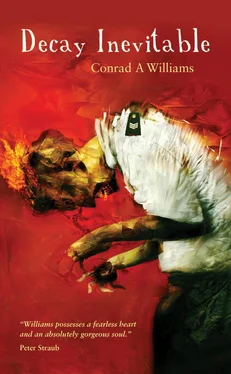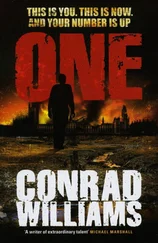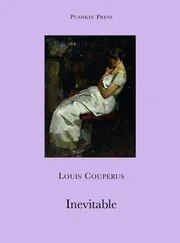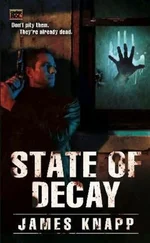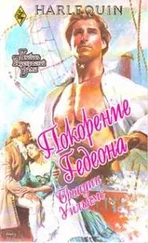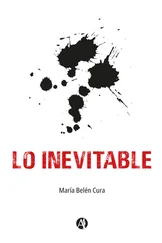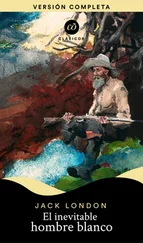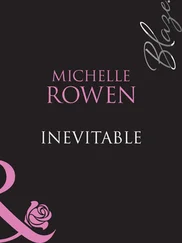Sean said, “You killed my parents.”
Gleave’s face fell, his oration wasted. “He’ll be back soon, de Fleche. A glorious return. Once scum like you have been put in the earth. Once all the Negstreams have been sealed for good.”
Sean felt heat flood his fingers, his hands. His arms stiffened with intent. “You killed them.”
Gleave affected a demure look. “A trifling detail in my biography, but yes, you’re right, I bagged those cunts.”
Sean launched himself, knocking over the table and causing the remaining chess pieces to skitter across the floor.
“Kryptonite for Superman!” Gleave laughed, and turned his back coolly on Sean as he swung a fist for him. A length of rope fell on Sean from the balcony overlooking the room. It wasn’t just the weight of the rope or its tenacious coils that trapped him, but something in the rope, something that turned and twisted with its fibres and chilled him to the point of inaction. He felt weak, drained, as though he had just stepped from a long bath that was way too hot for him.
He watched Gleave through a net of grey walk towards a set of double doors. “That, my friend,” he said, “is shroud-laid rope. It consists of four strands wrapped around its heart. It is a strong rope, Sean. And that particular coil is an ageless specimen. Its loops have held dreamships steady in the harbours of the mind. That length has known so many knots and splices. Knots that have been tied by sailors from distant lands and distant centuries. Maybe a million hands have shaped that rope into what? – sheet bends and true-lovers’ knots; the blackwall hitch, the sheepshank, the hackamore. It’s the only weapon your lot understand. It’s my gun and it’s cocked, every chamber filled; the muzzle is pointing at your heart.”
Gleave snapped the handle of the door down and let it swing open.
“It’s a long rope, isn’t it, Sean? I wonder where the other end of it could be? Hey, let me tell you, Sean, how to create a bowline knot. Let me show you how.”
Through the grey net that pulsed and shivered over his eyes, pledging to take him down into unconsciousness, he saw into the adjoining room. The rope snaked deep into it and rose into the air. Emma was swinging by the neck on the end of it, which had been lashed to a wooden tie-beam that traversed the width of the room. Her face was black and her tongue hung from her mouth, almost reaching as far as her collarbone. One of her shoes had slipped off. She swung like a metronome, ticking off the beat of his misery. He could still smell the apples in her hair.
The grey net turned black and he was saved from seeing any more.
CHAPTER FORTY-FIVE: THE BURN
DE FLECHE HAD approached him with the timid politeness of an elderly man who wants to know the time, or directions to the library. His smile was disarming, but there was something about his eyes that unsettled Will. They looked as though they belonged to someone else, as if this body had come across them by luck, or poached them from another. They were too bright and vibrant for this vessel. De Fleche’s head flopped against his shoulder at a sickening angle as though he had no bones in his neck. He regarded Will almost curiously, the bizarre set to his head giving him a shy appearance.
“You help the man, the woman, yes? You tell them runaway chop-chop?”
Will bore down on his distaste. The voice was loose and phlegmy and sounded as though it were travelling to him over a bed of smashed glass. The smell that floated off the man’s lolling tongue – the size of a dog’s tongue – was rank in the extreme.
“I don’t know them.”
“You don’t? You chit-chat away like old friends. Talking weather? Talking sport? Talking who is poking who?” A forefinger stabbed into the O made with his other hand.
“I thought I knew him, but I didn’t.”
De Fleche grinned. “You’ll see many faces here that you thought you knew. Old friends. Old lovers.” He scrutinised Will’s face like an experienced shopper seeking bargains at a fruit stall. “You’re fresh.”
“Fresh?”
De Fleche nodded enthusiastically. “Cooling on the slab. Path man tucking into you with his saws and blades. Brain on the scales. Cause of death.”
“I suppose I’m fresh then. Yes.”
“You with me? You without me?”
Will looked around him. In the distance, a dozen grey smocks had clustered at the top of the hill, which was just visible over the tops of the trees. Their heads were turned towards him, he could tell. He wondered if they were the restful dead. The unpanicked dead. Those who had died before de Fleche’s time and were immune to his influence.
“Sorry?”
“You in my pocket or fodder?”
“Fodder for what?” Will asked. “I’m dead. I bought the extra-large T-shirt and I’ll wear it every day. I’ve done death. What else is there, for Christ’s sake?”
“Death is a beginning. Oh it’s other things too. It’s irony’s best mate. Death is a joker with a bag of pepper sweets. Death is an appointment it doesn’t know how to keep. Death doesn’t wear a watch. Death is yesterday and tomorrow all wrapped up in one. But most of all it’s a beginning. If you want it.”
“And if I don’t?”
De Fleche leaned into him, conspiratorially. “I know of things here, if you know where to look for them, that will devour your soul.” He stepped back, beaming at Will as if he had just told him a rude joke and was waiting to see the reaction. “Drink?” He pulled a bottle made from smoky glass from his pocket, leaving enough of the flap open for Will to see what else lay inside, if he so wished.
“You in my pocket?”
“What are you after?” Will said. His eyes hadn’t strayed from the pocket since de Fleche had withdrawn the bottle. He ignored the drink when de Fleche offered it to him again. Something was in there; he could see light glancing off it, slow liquid light that snagged in Will’s eyes like syrup spinning from a spoon.
“Simple things in life,” de Fleche said. “A steak pie and a glass of Tizer. A woman with big tits. Friday night is comedy night on Channel Four. Revenge.”
Will didn’t hear any of it. Instead, he heard de Fleche’s original question, repeated so often it became mantra-like, became nonsense, like repeating one’s name over and over until the monotony of speech takes away all of its relevance.
“What’s in there?” he asked, lifting himself on tip-toe to try to define its shape.
“You in my pocket? You in my pocket?”
youinmypocketyouinmypocketyouinmypocketyouinmypocket
It was a book. The first book Catriona had ever bought for him, when they had been seeing each other for about a month. It was a tatty old Corgi Carousel paperback by Gordon Burness called The White Badger . Cat had bought it for him because the picture on the cover – of Snowball, an albino badger – reminded her of Will: pale, bemused, babyish. Inside, she had written: For Will. My own little badger. Love, Cat .
He remembered the smell of that book. He had slipped it under his pillow once he had read it. He gazed at it now. He yearned for its smell, for its special feel between his fingers. Something she had bought for him. Something she had touched, just for a little time. Something she had touched.
youinmypocketyouinmypocketyouinmypocketyouinmypocket
Will said, “You don’t have any power over me.”
“We’ll see about that,” de Fleche replied, deepening the view for him. “We’ll see.”
THEY LIFTED SEAN and carried him into the room, a dining room with its long table set to one side. On the walls were various pictures of benevolent seascapes and smiling, matriarchal figures in the midst of picnicking families and frisky dogs. They provided a sickening diorama against which Emma swung gently, the rope (he hoped it was the rope, God yes, the rope, and not the bones in her neck grating together) grinding and popping as it shifted against the beam.
Читать дальше
